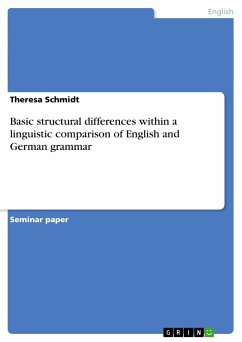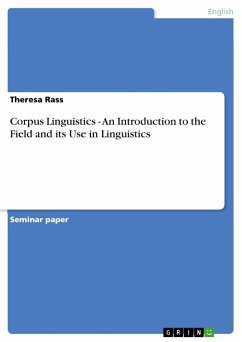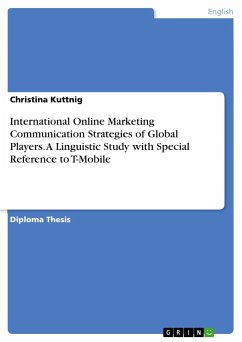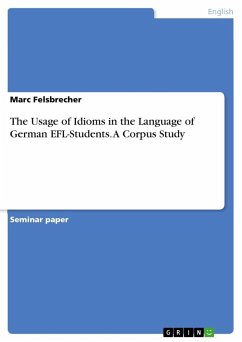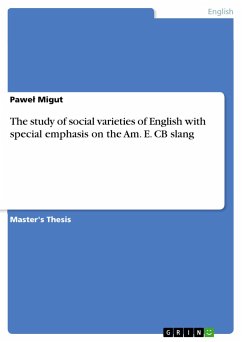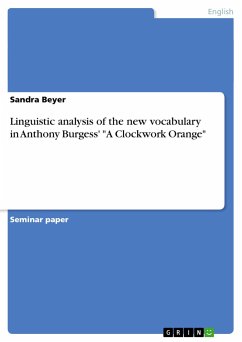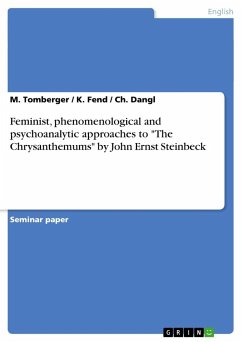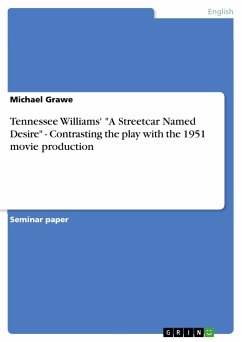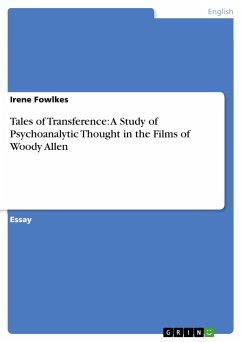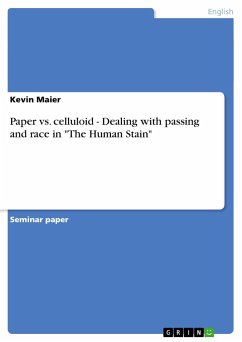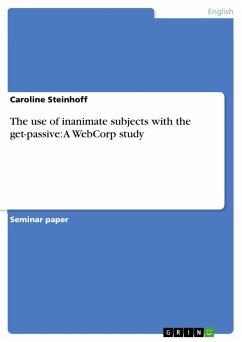
The use of inanimate subjects with the get-passive: A WebCorp study

PAYBACK Punkte
0 °P sammeln!
Seminar paper from the year 2008 in the subject English Language and Literature Studies - Linguistics, grade: 1,0, University of Paderborn, course: The Web as a Linguistic Corpus, language: English, abstract: This paper is concerned with the use of the internet in linguistic research. The phenomenon under investigation is the get-passive. In a first step, I will outline reasons for and problems with using the web as a linguistic corpus. After this, I will explain the linguistic phenomenon "get-passive", taking into account the debate on the term itself, typical characteristics of the get-passi...
Seminar paper from the year 2008 in the subject English Language and Literature Studies - Linguistics, grade: 1,0, University of Paderborn, course: The Web as a Linguistic Corpus, language: English, abstract: This paper is concerned with the use of the internet in linguistic research. The phenomenon under investigation is the get-passive. In a first step, I will outline reasons for and problems with using the web as a linguistic corpus. After this, I will explain the linguistic phenomenon "get-passive", taking into account the debate on the term itself, typical characteristics of the get-passive and its diachronic development. The next step will be the description and analysis of the WebCorp study on get-passives as opposed to be-passives. In this way, I hope to be able to show whether the constraints traditionally attributed to get-passives, in particular animacy of the subject, are still in force, or in how far they are lessening, possibly making the get-passive an equivalent contestant to the be-passive. Differences between British and American English will be examined in order to find out whether either variant is more advanced.




